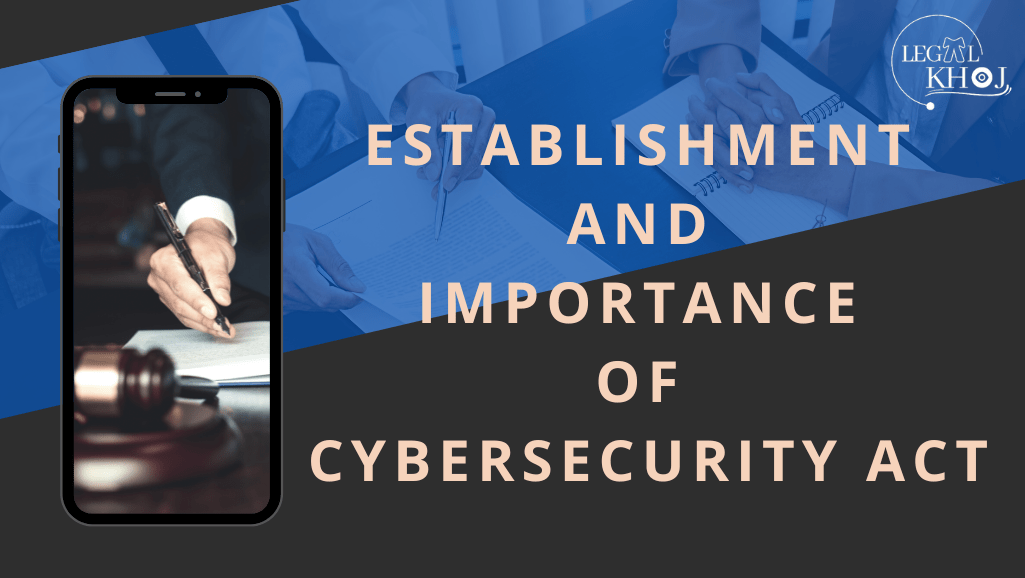The term “Cybersecurity Act” can refer to different laws enacted in different countries,
but generally, it refers to legislation that seeks to strengthen cybersecurity measures
to protect against cyber threats and attacks. These laws can cover a wide range of
topics, including the establishment of cybersecurity standards, data protection,
incident reporting requirements, and increased collaboration between government
and private sectors.
The importance of cybersecurity has increased dramatically over the past few decades, as technology has become more ubiquitous and cyber threats have become more sophisticated. Cybersecurity threats can come from a wide range of sources, including hackers, organised crime groups, and foreign governments. These threats can have serious consequences, including data breaches, identity theft, and damage to critical infrastructure.
In response to these threats, many countries have enacted cybersecurity legislation. For example, in the United States, the Cybersecurity Act of 2015 was enacted to help address cybersecurity threats. This law established a number of initiatives to help improve cybersecurity, including the creation of a National Cybersecurity and Communications Integration Center to coordinate cybersecurity efforts between different government agencies and the private sector.
One of the key components of many cybersecurity acts is the establishment of cybersecurity standards. These standards can help ensure that organizations are taking appropriate steps to protect their systems and data from cyber threats. For example, the European Union’s General Data Protection Regulation (GDPR) requires organizations to take a number of specific steps to protect personal data, including implementing appropriate technical and organizational measures to ensure the security of data.
Another key component of many cybersecurity acts is incident reporting requirements. These requirements typically mandate that organizations report any significant cybersecurity incidents to the relevant authorities, such as a government agency or regulatory body. This can help ensure that cybersecurity threats are identified and addressed in a timely manner.
In addition to incident reporting, many cybersecurity acts establish penalties for non-compliance. These penalties can include fines, loss of licenses, and other sanctions. By establishing these penalties, governments can incentivize organizations to take cybersecurity seriously and invest in appropriate cybersecurity measures.
Increased collaboration between government and the private sector is also a common feature of many cybersecurity acts. This collaboration can take many different forms, including information sharing, joint exercises, and coordinated responses to cyber threats. By working together, government and the private sector can better protect against cyber threats and ensure a more coordinated response to incidents.
In the United States, the Cybersecurity Information Sharing Act (CISA) was enacted in 2015 to encourage greater collaboration between the government and the private
sector. Under this law, organizations can share cyber threat indicators and defensive
measures with the government, which can then use this information to better protect
against cyber threats.
However, there are some criticisms of cybersecurity acts. Some critics argue that
these laws can be too prescriptive and may stifle innovation. Additionally, some argue
that these laws may not be effective in protecting against all types of cyber threats,
particularly those that are constantly evolving and difficult to anticipate.
Overall, the Cybersecurity Act is an important tool for addressing the growing threat
of cyber attacks. These laws can help establish cybersecurity standards, improve
incident reporting, and encourage greater collaboration between the government and
the private sector. While there are some criticisms of these laws, they remain an
important step in protecting against cyber threats and ensuring a more secure digital
environment.
